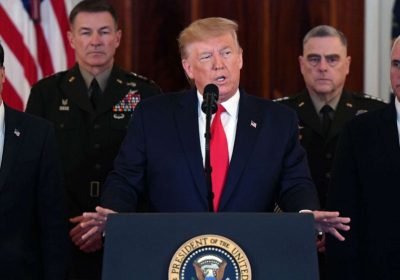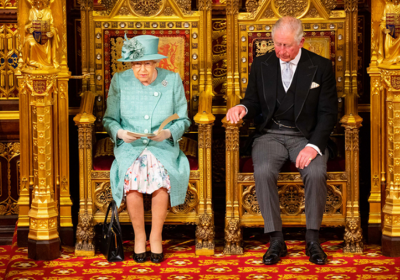Since the third session of the Supreme Soviet the international situation has shown no change for the better. On the contrary, it has become even more tense. Steps taken by various governments to put an end to this state of tension have obviously proved inadequate. This is true of Europe. Nor has there been any change for the better in Eastern Asia. Japanese troops continue to occupy principal cities and a considerable part of the territory of China. Nor is Japan refraining from hostile acts against the USSR. Here, too, the situation has changed in the direction of further aggravation.
In view of this state of affairs, the conclusion of a pact of non-aggression between the USSR and Germany is of tremendous positive value, eliminating the danger of war between Germany and the Soviet Union. In order more fully to define the significance of this pact I must first dwell on the negotiations which have taken place in recent months in Moscow with representatives of Great Britain and France.
As you are aware, Anglo – French – Soviet negotiations for the conclusion of a pact of mutual assistance against aggression in Europe began as far back as April. True, the initial proposals of the British government were, as you know, entirely unacceptable. They ignored the prime requisites for such negotiations – they ignored the principle of reciprocity and the equality of obligations. In spite of this, the Soviet government did not reject negotiations and in its turn put forward its own proposals. We appreciated the fact that it was difficult for the governments of Great Britain and France to make an abrupt change in their policy from the unfriendly attitude towards the Soviet Union which had existed until quite recently, to serious negotiations with the USSR, based on conditions of equality of obligations. However, the subsequent negotiations were not justified by results. The Anglo – French – Soviet negotiations lasted for four months. They helped to clarify a number of questions. At the same time they made it clear to the representatives of Great Britain and France that the Soviet Union had to be seriously reckoned with in international affairs.
But these negotiations encountered insuperable obstacles. The trouble, of course, did not lie in individual ‘formulations’, or in particular clauses of the draft pact. No, the trouble was much more serious. The conclusion of a pact of mutual assistance against aggression would have been of value only if Great Britain, France and the Soviet Union had arrived at an agreement as to definite military measures against the attack of an aggressor.
Accordingly for some time, not only political but also military negotiations were conducted in Moscow with the representatives of the British and French armies. However, nothing came of the military negotiations. They encountered the difficulty that Poland, who was to be jointly guaranteed by Great Britain, France and the USSR, rejected military assistance on the part of the Soviet Union. Attempts to overcome the objections of Poland met with no success. More, the negotiations showed that Great Britain was not anxious to overcome these objections of Poland, but on the contrary encouraged them.
It is clear that, such being the attitude of the Polish government and its principal ally towards military assistance by the Soviet Union in the event of aggression, the Anglo – French – Soviet negotiations could not bear fruit. After this it became evident to us that the Anglo – French – Soviet negotiations were doomed to failure.
What have the negotiations with Great Britain and France shown? They have shown that the position of Great Britain and France is characterised throughout by crying contradictions. Judge for yourselves.
On the one hand, Great Britain and France demanded that the USSR should give military assistance to Poland in case of aggression. The USSR, as you know, was willing to meet this demand, provided the USSR itself received like assistance from Great Britain and France. On the other hand, the same Great Britain and France brought Poland on to the scene, and the latter resolutely declined any military assistance on the part of the USSR. Just try in such circumstances to reach an agreement regarding mutual assistance – when assistance on the part of the USSR is declared beforehand to be unnecessary and an intrusion!
Further, on the one hand, Great Britain and France offered a guarantee to the Soviet Union of military assistance against aggression, in return for like assistance on the part of the USSR. On the other hand, they hedged round their assistance with such reservations regarding indirect aggression as might convert this assistance into a myth, and provided them with a formal legal excuse for evading assistance and placing the USSR in a position of isolation in face of the aggressor. Just try and distinguish between such a ‘pact of mutual assistance’ and a pact of more or less camouflaged chicanery!
Again, on the one hand, Great Britain and France stressed the importance and gravity of the negotiations for a pact of mutual assistance, and demanded that the USSR should treat the matter most seriously and settle very rapidly all questions concerning the pact. On the other hand, they themselves displayed extreme dilatoriness and anything but a serious attitude towards the negotiations, entrusting them to individuals of secondary importance who were not invested with adequate powers. It is enough to mention that the British and French military missions came to Moscow without any definite powers and without the right to conclude any military convention. Furthermore, the British military mission arrived in Moscow without any mandate at all, and it was only on the demand of our military mission that, on the very eve of the breakdown of negotiations, they presented written credentials. But even these credentials were of the vaguest kind, that is, credentials without proper weight. Just try and distinguish between this light-hearted attitude towards the negotiations on the part of Great Britain and France, and frivolous make-believe negotiations designed to discredit the whole business of negotiations!
Such were the intrinsic contradictions in the attitude of Great Britain and France which led to the breakdown of negotiations with the USSR. What is the root of these contradictions in the position of Great Britain and France? In a few words, it can be put as follows:
On the one hand, the British and French governments fear aggression, and for that reason would like to have a pact of mutual assistance with the Soviet Union, in so far as it would strengthen them – Great Britain and France. But on the other hand, the British and French governments are afraid that the conclusion of a real pact of mutual assistance with the USSR may strengthen our country – the Soviet Union – which it appears does not answer their purpose. One cannot but see that these fears outweighed other considerations. Only in this way can we understand the position of Poland, which has been acting on the instructions of Great Britain and France.
I shall now go on to the Soviet – German Non-Aggression Pact.
The decision to conclude a non-aggression pact between the USSR and Germany was adopted after military negotiations with France and Great Britain had reached an impasse owing to the insuperable difficulties I have mentioned. As the negotiations had shown that the conclusion of a pact of mutual assistance could not be expected, we could not but explore other possibilities of ensuring peace and eliminating the danger of war between Germany and the USSR. If the British and French governments refused to reckon with this, that is their affair. It is our duty to think of the interests of the Soviet people, the interests of the Union of Soviet Socialist Republics – all the more because we are firmly convinced that the interests of the USSR coincide with the fundamental interests of the peoples of other countries.
But that is only one side of the matter. Another circumstance was required before the Soviet – German Non-Aggression Pact could come into existence. It was necessary that in her foreign policy Germany should make a turn towards good neighbourly relations with the Soviet Union. Only when this second condition was fulfilled, only when it became clear to us that the German government desired to change its foreign policy so as to secure an improvement of relations with the USSR, was a basis found for the conclusion of the Soviet – German Non-Aggression Pact.
Everybody knows that during the last six years, ever since the National Socialists came into power, political relations between Germany and the USSR have been strained. Everybody also knows that, despite the differences of outlook and political systems, the Soviet government has endeavoured to maintain normal business and political relations with Germany.
There is no need just now to revert to individual incidents in these relations during recent years – and indeed they are sufficiently well known to you, comrades. I must, however, recall the explanation of our foreign policy given several months ago at the Eighteenth Party Congress. Speaking of our tasks in the realm of foreign policy, Comrade Stalin defined our attitude to other countries as follows: [5]
To continue a policy of peace and of strengthening business relations with all countries.
To be cautious and not to allow our country to be drawn into conflicts by warmongers who are accustomed to have others pull chestnuts out of the fire for them.
As you see, Comrade Stalin declared in these conclusions that the Soviet Union stands for strengthening business relations with all countries. But at the same time, he warned us against warmongers who were anxious in their own interests to involve our country in conflicts with other countries. Exposing the hullabaloo raised in the British, French and North American press about Germany’s ‘plans’ for the seizure of Soviet Ukraine, Comrade Stalin said:
It looks as if the object of this suspicious hullabaloo was to incense the Soviet Union against Germany, to poison the atmosphere and to provoke a conflict with Germany without any visible grounds.
As you see, Comrade Stalin hit the nail on the head when he exposed the machinations of West European politicians who were trying to set Germany and the Soviet Union at loggerheads. It must be confessed that there were some short-sighted people also in our country who, carried away by an over-simplified anti-Fascist propaganda, forgot about this provocative work of our enemies. Mindful of this, Comrade Stalin even then suggested the possibility of different, unhostile and good neighbourly relations between Germany and the USSR.
It can now be seen that, on the whole, in Germany they understood correctly these statements of Comrade Stalin, and they have drawn practical deductions from them. The conclusion of the Soviet – German Non-Aggression Pact shows that Comrade Stalin’s historical foresight has been brilliantly confirmed.
In the spring of this year, the German government made a proposal for the resumption of commercial and credit negotiations. Negotiations were resumed soon after. By making mutual concessions we succeeded in reaching an agreement. As you know, this agreement was signed on 19 August 1939. This was not the first commercial and credit agreement concluded with Germany under her present government.
But this agreement differs favourably not only from that concluded in 1935, but also from all previous agreements, not to mention the fact that we have never had any equally advantageous economic agreement with Great Britain, France or any other country. The agreement is advantageous to us because of its credit conditions (a seven-year credit) and because it enables us to order a considerable additional quantity of the equipment we need. By this agreement the USSR undertakes to sell to Germany a definite quantity of our surplus raw materials for her industry, which fully answers to the interests of the USSR.
Why should we reject such an advantageous economic agreement? Surely not to please those who, in general, are averse to the Soviet Union having advantageous economic agreements with other countries? And it is clear that the commercial and credit agreement with Germany is fully in accord with the economic interests and defensive needs of the Soviet Union. Such an agreement is fully in accord with the decision of the Eighteenth Congress of our party, which approved Comrade Stalin’s statement as to the need for ‘strengthening business relations with all countries’.
At the same time, when the German government expressed a desire to improve political relations as well, the Soviet government had no grounds for refusing. It was then that the question of concluding a non-aggression pact arose. Voices are now being heard which show a lack of understanding of the most simple reasons for the improvement in the political relations between the Soviet Union and Germany which has begun.
For example, people ask, with an air of innocence, how could the Soviet Union consent to improve its political relations with a state of a Fascist type? Is that possible, they ask. But they forget that it is not a question of our attitude towards the internal regime of another country, but of foreign relations between two states. They forget that our position is that we do not interfere in the internal affairs of other countries, and correspondingly do not tolerate interference in our own internal affairs. Furthermore, they forget an important principle of our foreign policy which was formulated by Comrade Stalin at the Eighteenth Party Congress as follows:
We stand for peace and the strengthening of business relations with all countries. That is our position; and we shall maintain this position so long as these countries maintain similar relations with the Soviet Union, and so long as they make no attempt to trespass on the interests of our country.
The meaning of these words is quite clear. The Soviet Union strives to maintain good neighbourly relations with all non-Soviet countries, in so far as these countries maintain a like attitude towards the Soviet Union. In our foreign policy towards non-Soviet countries we have always been guided by Lenin’s well-known principle of the peaceful coexistence of the Soviet state and capitalist countries.
Many examples might be quoted to show how this principle has been carried out in practice; but I will confine myself to only a few. We have had, for instance, a Non-Aggression and Neutrality Treaty with Fascist Italy ever since 1933. It has never occurred to anybody as yet to object to this treaty: and that is natural. Inasmuch as this pact meets the interests of the USSR, it is in accord with our principle of the peaceful coexistence of the USSR and capitalist countries. We have non-aggression pacts also with Poland and with certain other countries whose semi-Fascist system is well known. These pacts have not given rise to any misgivings either.
Perhaps it would not be superfluous to mention the fact that we have not even treaties of this kind with certain other non-Fascist, bourgeois democratic countries – with Great Britain herself, for instance. But that is not our fault.
Since 1926 the political basis of our relations with Germany has been the Treaty of Neutrality which was prolonged by the present German government in 1933. [6] This Treaty of Neutrality remains in force to this day. The Soviet government considered it desirable even before this to take a further step towards improving political relations with Germany, but circumstances have been such that this has become possible only now.
It is true that, in the present case, we are dealing not with a pact of mutual assistance, as in the case of the Anglo – Soviet – Soviet [7]negotiations, but only with a non-aggression pact. Nevertheless, conditions being what they are, it is difficult to overestimate the international importance of the Soviet – German pact. That is why we favoured the visit of the German Minister for Foreign Affairs, Herr von Ribbentrop, to Moscow.
The twenty-third of August 1939, the day the Soviet – German Non-Aggression Pact was signed, is to be regarded as a date of great historical importance. The non-aggression pact between the USSR and Germany marks a turning point in the history of Europe, and not of Europe alone. Only yesterday German Fascists were pursuing a foreign policy hostile to us. Yes, only yesterday we were enemies in the sphere of foreign relations. Today, however, the situation has changed and we are enemies no longer.
The art of politics in the sphere of foreign relations does not consist in increasing the number of enemies for one’s country. On the contrary, the art of politics in this sphere is to reduce the number of such enemies and make the enemies of yesterday good neighbours, maintaining peaceable relations one with the other. History has shown that enmity and wars between our country and Germany have been to the detriment of our countries, not to their benefit.
The countries which suffered most of all in the war of 1914-18 were Russia and Germany. Therefore, the interests of the peoples of the Soviet Union and Germany do not lie in mutual enmity. On the contrary, the peoples of the Soviet Union and Germany stand in need of peaceable relations. The Soviet – German Non-Aggression Pact puts an end to the enmity between Germany and the USSR, and this is in the interests of both countries. The fact that our outlooks and political systems differ must not and cannot be an obstacle to the establishment of good political relations between both states, just as like differences are no impediment to the good political relations which the USSR maintains with other non-Soviet capitalist countries.
Only the enemies of Germany and the USSR can strive to create and foment enmity between the peoples of these countries. We have always stood for amity between the peoples of the USSR and Germany, and for the growth and development of friendship between the peoples of the Soviet Union and the German people.
The chief importance of the Soviet – German Non-Aggression Pact lies in the fact that the two largest states of Europe have agreed to put an end to enmity between them, to eliminate the menace of war and to live at peace one with the other, making narrower thereby the zone of possible military conflicts in Europe.
Even if military conflicts in Europe should prove unavoidable, the scope of hostilities will now be restricted. Only instigators of a general European war, only those who under the mask of pacifism would like to ignite a general conflagration in Europe, can be dissatisfied at this position of affairs.
The Soviet – German Pact has been the object of numerous attacks in the British, French and American press.
Particularly zealous in this respect have been certain ‘Socialist’ journals – servitors of ‘their’ national capitalism, servitors of those of their masters who pay them pretty well. Naturally, one cannot expect the real truth from these gentlemen.
Attempts are being made to spread the fiction that the conclusion of the Soviet – German Pact disrupted negotiations with Britain and France for a mutual assistance pact. This lie has already been nailed in the interview given by Voroshilov. In reality, as you know, the very reverse is true. The Soviet Union signed the non-aggression pact with Germany, amongst other things, because negotiations with France and England had come to a deadlock owing to insuperable differences, and had ended in failure through the fault of the ruling classes of Britain and France.
Further, they go so far as to blame us because the pact, if you please, contains no clause providing for its denunciation in case one of the signatories is drawn into war under conditions which might give someone or other the external pretext to qualify this particular country as an aggressor. But strange to say they forget that such a clause and such a reservation is not to be found either in the Polish – German non-aggression pact signed in 1934, and annulled by Germany in 1939 against the wishes of Poland, or in the Anglo – German declaration on non-aggression signed only a few months ago. The question arises: Why cannot the USSR permit itself the same privilege as Poland and Britain allowed themselves long ago?
Finally, there are wiseacres who construe from the pact more than is written in it. For this purpose all kinds of conjectures and hints are mooted in order to cast doubt on the pact in one or other country. But all this merely demonstrates the hopeless impotence of the enemies of the pact who are exposing themselves more and more as enemies of both the Soviet Union and Germany, striving to provoke war between these countries.
In all this we find fresh corroboration of Comrade Stalin’s warning that we must be particularly cautious with warmongers who are accustomed to have other people pull their chestnuts out of the fire. We must be on our guard against those who see some advantage to themselves in bad relations between the USSR and Germany, in enmity between them, and who do not want peace and good neighbourly relations to exist between Germany and the Soviet Union. We can understand why this policy is being pursued by out-and-out imperialists.
But we cannot pass over the fact that certain leaders of the Socialist parties of Britain and France have displayed quite exceptional zeal in this respect. And, indeed, so flustered have these gentlemen become that they have gone the whole hog, and no mistake. These people demand that the USSR should without fail be drawn into the war on the side of Britain against Germany. Have these rabid warmongers completely taken leave of their senses?
Is it really difficult for these gentlemen to understand the purpose of the Soviet – German Non-Aggression Pact on the strength of which the USSR is not obliged to involve itself in war either on the side of Great Britain against Germany, or on the side of Germany against Great Britain?
Is it really difficult to comprehend that the USSR is pursuing, and will continue to pursue, its own independent policy based on the interests of the peoples of the USSR, and only these interests? If these gentlemen have such an uncontrollable desire to fight, let them do their own fighting without the Soviet Union. We would see what fighting stuff they are made of.
In our eyes, in the eyes of the entire Soviet people, these are just as much enemies of peace as all the other instigators of war in Europe. Only those who desire a grand new slaughter, a new holocaust of nations, only they want to set the Soviet Union and Germany at loggerheads; they are the only people who want to destroy the incipient restoration of good neighbourly relations between the peoples of the USSR and Germany.
The Soviet Union signed the pact with Germany fully assured that peace between the peoples of the USSR and Germany is in the interests of all peoples, in the interests of universal peace. Every sincere supporter of peace will realise the truth of this. This pact corresponds with the fundamental interests of the working people of the Soviet Union and cannot weaken our vigilance in defence of those interests. This pact is backed by firm confidence in our actual forces, in their complete preparedness to meet any aggression against the USSR.
This pact (like the unsuccessful Anglo – French – Soviet negotiations) proves that no important questions of international relations, and still less questions in Eastern Europe, can be settled without the active participation of the Soviet Union; that any attempts to shut out the Soviet Union and decide such questions behind her back are doomed to failure.
The Soviet – German Non-Aggression Pact spells a new turn in the development of Europe; a turn towards the improvement of relations between the two largest states of Europe. This pact not only eliminates the menace of war with Germany, narrows down the zone of possible hostilities in Europe, and serves thereby the cause of universal peace; it must open to us new possibilities of increasing our strength, further consolidation of our positions, and the further growth of the influence of the Soviet Union on international developments.
There is no need to dwell here on the separate clauses of the pact. The Council of Peoples’ Commissars has reason to hope that the pact will meet with your approval as a document of cardinal importance to the USSR. The Council of Peoples’ Commissars submits the Soviet – German Non-Aggression Pact to the Supreme Soviet and proposes that it be ratified.
Enviado por Enrique Ibañes















